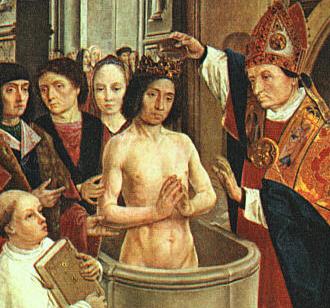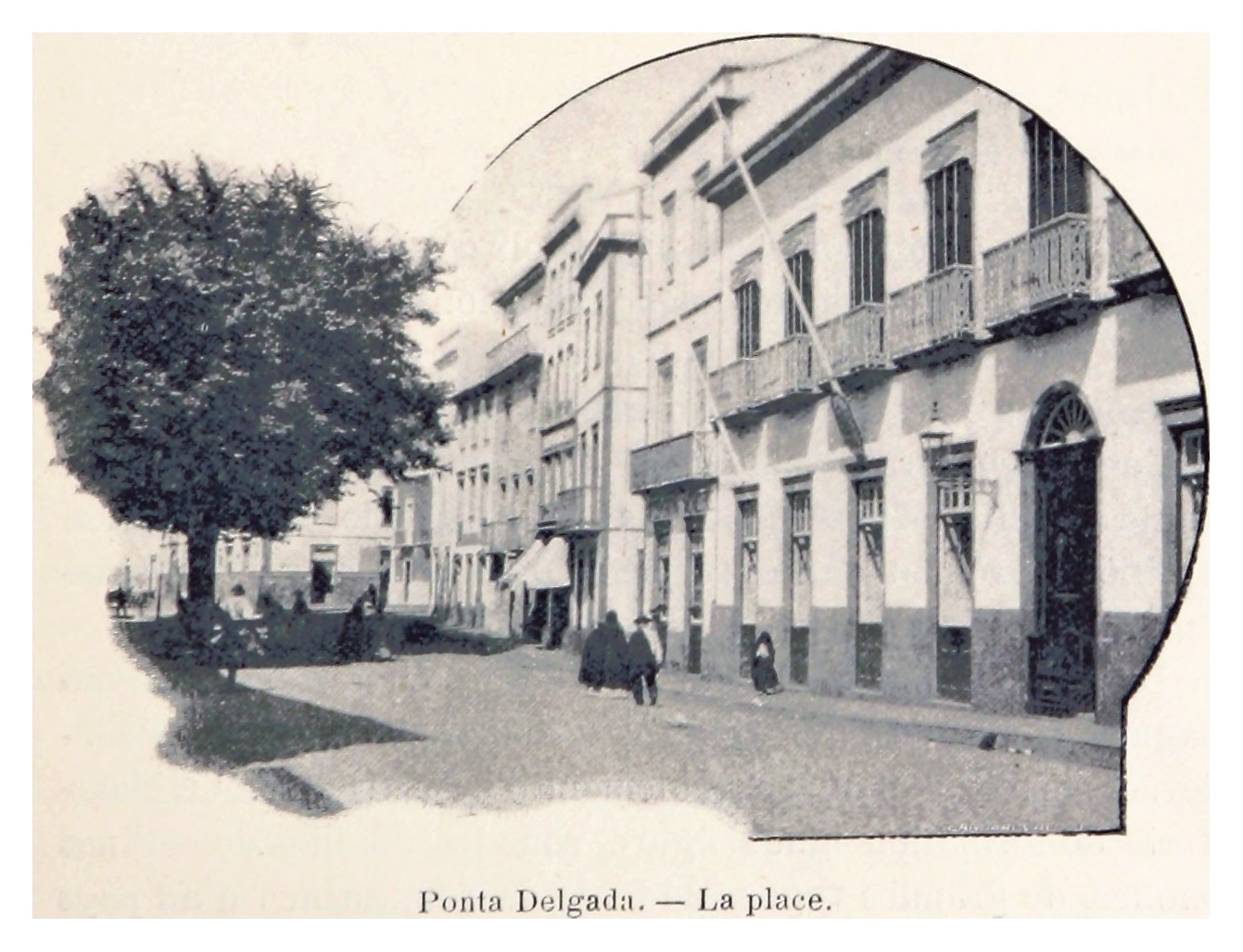|
António Maria De Sousa Horta E Costa
António Maria de Sousa Horta e Costa (21 September 1859 – 5 September 1931) was a Portuguese jurist, magistrate, and politician. He was the third son of Miguel António de Sousa Horta Almeida e Vasconcelos, 2nd Baron of Santa Comba Dão and second wife Maria da Glória da Costa Brandão e Albuquerque. Career He was a graduate in law from the University of Coimbra, Judge of Law in Portuguese Guinea, having served in the interim the offices of governor-general and secretary general of the Province of Mozambique and, as an effective, the one of Delegate of the Procurator of the Crown and Treasury of Inhambane and Mozambique, and the one of Administrator of the Council of Soure, later becoming Judge Counselor of the Supreme Court of Justice. Family He married firstly on 15 February 1885 Guilhermina de Carvalho da Costa Soares (3 November 1868 – 15 July 1888), daughter of Dr Pedro da Costa Soares, Bachelor graduated in law from the University of Coimbra, Captain-Major of th ... [...More Info...] [...Related Items...] OR: [Wikipedia] [Google] [Baidu] |
Portuguese People
The Portuguese people ( – masculine – or ''Portuguesas'') are a Romance languages, Romance-speaking ethnic group and nation Ethnic groups in Europe, indigenous to Portugal, a country that occupies the west side of the Iberian Peninsula in Southern Europe, south-west Europe, who share Culture of Portugal, culture, ancestry and Portuguese language, language. The Portuguese state began with the founding of the County of Portugal in 868. Following the Battle of São Mamede (1128), Portugal gained international recognition as a Kingdom of Portugal, kingdom through the Treaty of Zamora and the papal bull Manifestis Probatum. This Portuguese state paved the way for the Portuguese people to unite as a nation. The Portuguese Portuguese maritime exploration, explored Hic sunt Dracones, distant lands previously unknown to Europeans—in the Americas, Africa, Asia and Oceania (southwest Pacific Ocean). In 1415, with the conquest of Ceuta, the Portuguese took a significant role in the ... [...More Info...] [...Related Items...] OR: [Wikipedia] [Google] [Baidu] |
Captain-Major
A donatary captain was a Portuguese colonial official to whom the Crown granted jurisdiction, rights and revenues over some colonial territory. The recipient of these grants was called a (donatary), because he had been given the grant as a (donation) by the king, often as a reward for service.Johnson 1972 The term also applied as the rank of the field officer that was in charge of a captaincy, captaincy's territorial militia, called in Portuguese, a military unit which existed from the 16th to the 19th centuries. Captaincy system Due to the impossibility of exercising direct control and sovereignty over overseas territories, the captain-major was the channel by which the monarch could delegate his powers, with certain restrictions, under the responsibility of persons in whom he confided. The could administer, on behalf of the Sovereign, the lands to which he was assigned, with all the regalia, rights and obligations, with the exception of certain limits, including military aut ... [...More Info...] [...Related Items...] OR: [Wikipedia] [Google] [Baidu] |
1931 Deaths
Events January * January 2 – South Dakota native Ernest Lawrence invents the cyclotron, used to accelerate particles to study nuclear physics. * January 4 – German pilot Elly Beinhorn begins her flight to Africa. * January 22 – Sir Isaac Isaacs is sworn in as the first Australian-born Governor-General of Australia. * January 25 – Mohandas Gandhi is again released from imprisonment in India. * January 27 – Pierre Laval forms a government in France. * January 30 – Charlie Chaplin comedy drama film ''City Lights'' receives its public premiere at the Los Angeles Theater with Albert Einstein as guest of honor. Contrary to the current trend in cinema, it is a silent film, but with a score by Chaplin. Critically and commercially successful from the start, it will place consistently in lists of films considered the best of all time. February * February 4 – Soviet leader Joseph Stalin gives a speech calling for rapid industrialization, arguing that only strong indus ... [...More Info...] [...Related Items...] OR: [Wikipedia] [Google] [Baidu] |
1859 Births
Events January–March * January 21 – José Mariano Salas (1797–1867) becomes Conservative interim President of Mexico. * January 24 ( O. S.) – Under the rule of Alexandru Ioan Cuza, the provinces of Wallachia and Moldavia are united under the jurisdiction of the Ottoman Empire. It would be a principal step in forming the modern state of Romania. * January 28 – The city of Olympia is incorporated in the Washington Territory of the United States of America. * February 2 – Miguel Miramón (1832–1867) becomes Conservative interim President of Mexico. * February 4 – German scholar Constantin von Tischendorf rediscovers the '' Codex Sinaiticus'', a 4th-century uncial manuscript of the Greek Bible, in Saint Catherine's Monastery on the foot of Mount Sinai, in the Khedivate of Egypt and arranges for its presentation to his patron, Tsar Alexander II of Russia at Saint Petersburg. * February 14 – Oregon is admitted as the 33rd U.S. state. * February 12 – ... [...More Info...] [...Related Items...] OR: [Wikipedia] [Google] [Baidu] |
Portuguese Army
The Portuguese Army () is the land component of the Portuguese Armed Forces, Armed Forces of Portugal and is also its largest branch. It is charged with the defence of Portugal, in co-operation with other branches of the Armed Forces. With its origins going back to the 12th century, it can be considered one of the oldest active armies in the world. The Portuguese Army is commanded by the Chief of Staff of the Army (CEME), a subordinate of the Chief of the General Staff of the Armed Forces for the operational matters and a direct subordinate of the Ministry of National Defence (Portugal), Ministry of National Defense for all other matters. The CEME is the only officer in the Army with the rank of General (Four-star rank). Presently, the Portuguese Army is an entirely professional force made of career personnel (officer (armed forces), officers and Non-commissioned officer, NCOs) and of volunteer personnel (officers, NCOs and enlisted ranks). Until the early 1990s, conscripts con ... [...More Info...] [...Related Items...] OR: [Wikipedia] [Google] [Baidu] |
Consul (representative)
A consul is an official representative of a government who resides in a foreign country to assist and protect citizens of the consul's country, and to promote and facilitate commercial and diplomatic relations between the two countries. A consul is generally part of a government's diplomatic corps or Diplomatic service, foreign service, and thus enjoys certain privileges and protections in the host state, albeit without full diplomatic immunity. Unlike an ambassador, who serves as the single representative of one government to another, a state may appoint several consuls in a foreign nation, typically in major cities; consuls are usually tasked with providing assistance in bureaucratic issues to both citizens of their own country traveling or living abroad and to the citizens of the country in which the consul resides who wish to travel to or trade with the consul's country. Origin and history Antecedent: the classical Greek ''proxenos'' In classical Greece, some of the f ... [...More Info...] [...Related Items...] OR: [Wikipedia] [Google] [Baidu] |
Dutch People
The Dutch, or Netherlanders (Dutch language, Dutch: ) are an ethnic group native to the Netherlands. They share a common ancestry and culture and speak the Dutch language. Dutch people and their descendants are found in migrant communities worldwide, notably in Argentina, Aruba, Australia, Brazil, Canada,Based on Statistics Canada, Canada 2001 Census]Linkto Canadian statistics. Caribbean Netherlands, Curaçao, Germany, Guyana, Indonesia, New Zealand, Sint Maarten, South Africa, Suriname, and the United States.According tFactfinder.census.gov The Low Countries were situated around the border of France and the Holy Roman Empire, forming a part of their respective peripheries and the various territories of which they consisted had become virtually autonomous by the 13th century. Under the Habsburgs, the Netherlands were organised into a single administrative unit, and in the 16th and 17th centuries the Northern Netherlands gained independence from Spain as the Dutch Republic. The ... [...More Info...] [...Related Items...] OR: [Wikipedia] [Google] [Baidu] |
Atouguia Da Baleia
Atouguia da Baleia is a parish A parish is a territorial entity in many Christianity, Christian denominations, constituting a division within a diocese. A parish is under the pastoral care and clerical jurisdiction of a priest#Christianity, priest, often termed a parish pries ... in the municipality of Peniche, in Portugal. The population in 2011 was 8,954, in an area of 47.02 km2. The village of Atouguia da Baleia proper has almost 2,000 residents. The geology of Atouguia da Baleia is Late Jurassic Lourinhã Fm., where the dinosaur Miragaia longicollum was found. References Freguesias of Peniche, Portugal {{Leiria-geo-stub ... [...More Info...] [...Related Items...] OR: [Wikipedia] [Google] [Baidu] |
Vila Franca Do Campo (Azores)
Vila Franca do Campo () is a Portuguese town on the island of São Miguel in the Autonomous Region of the Azores. It covers an area of 78.00 km² and has a population of 10,323 inhabitants (2021). The municipality is divided into 6 parishes and is bordered to the north by the municipality of Ribeira Grande, to the east by Povoação, to the west by Lagoa, and to the south it has a coastline along the Atlantic Ocean. The town is located at a latitude of 37.71667 (37°41') North and a longitude of 25.433 (25°26') West. In front of Vila Franca do Campo, approximately 1,200 metres from the Tagarete port, lies the Ilhéu de Vila Franca (Vila Franca Islet), a coastal tuff cone strongly lithified, which contains within it an almost perfectly circular flooded caldera. Since 1993, the Ilhéu de Vila Franca has been a natural reserve and remains an important summer destination. History Vila Franca do Campo displays its municipal motto, ''Quis sicut deus?'', on its flag and on its coat- ... [...More Info...] [...Related Items...] OR: [Wikipedia] [Google] [Baidu] |
Ponta Delgada (Azores)
Ponta Delgada (; ) is the largest municipality (''concelho'') and executive capital of the Autonomous Region of the Azores in Portugal. It is located on São Miguel Island, the largest and most populous in the archipelago. As of 2021, it has 67,287 inhabitants, in an area of . There are 17,629 residents in the three central civil parishes that comprise the historical city: São Pedro, São Sebastião, and São José. Ponta Delgada became the region's administrative capital under the revised constitution of 1976; the judiciary and Catholic See remained in the historical capital of Angra do Heroísmo while the Legislative Assembly of the Azores was established in Horta. History The origin of the placename Ponta Delgada (Portuguese for ''delicate or thin point'') was elaborated by the famous Portuguese chronicler, Father Gaspar Frutuoso, who wrote: In around 1450, Pêro de Teive established a small fishing village that eventually grew into the urban agglomeration in Sant ... [...More Info...] [...Related Items...] OR: [Wikipedia] [Google] [Baidu] |
Ribeira Grande (Azores)
Ribeira Grande () is a municipality in the northern part of the island of São Miguel in the Portuguese Azores. The population in 2011 was 32,112, in an area of 180.15 km2. The municipal seat is located in the civil parish of Matriz, with a population of about 4000 inhabitants, part of the urbanized core of what is commonly referred to as the city of Ribeira Grande (six civil parishes, about 10000 inhabitants). History The first settlers arrived on the island by the end of the second quarter of the 15th century. The expansion of settlement occurred after initiatives by the island's third donatary captain, Rui Gonçalves da Câmara (son of João Gonçalves Zarco, resulting in northern colonies from peoples from Madeira. Although the early settlement of Ribeira Grande is mired in murkiness owing to the lack of resources, the best sources indicate that settlement began in the late-15th or early-16th centuries. The first settlers to this region are to the northern part of the ... [...More Info...] [...Related Items...] OR: [Wikipedia] [Google] [Baidu] |




